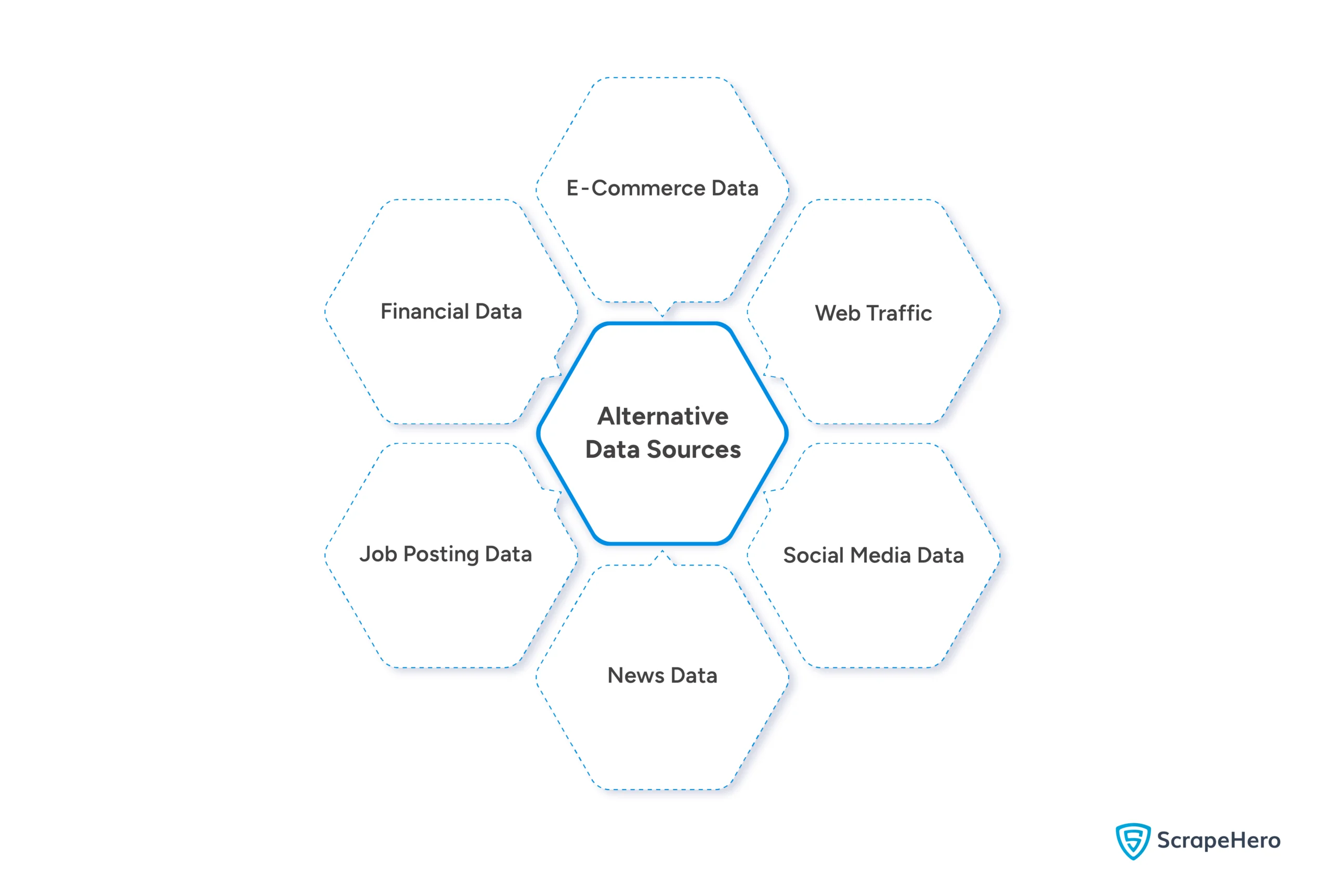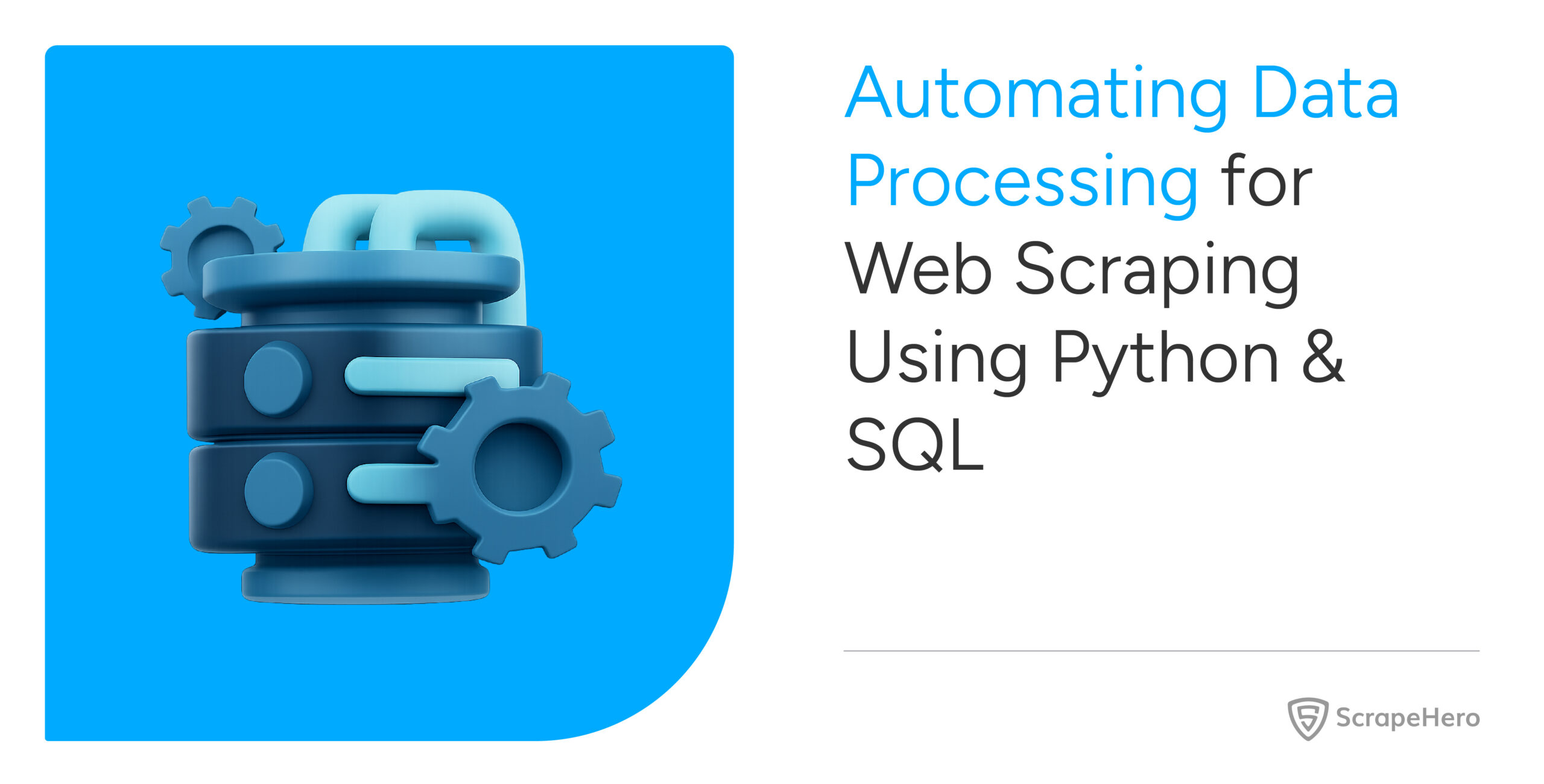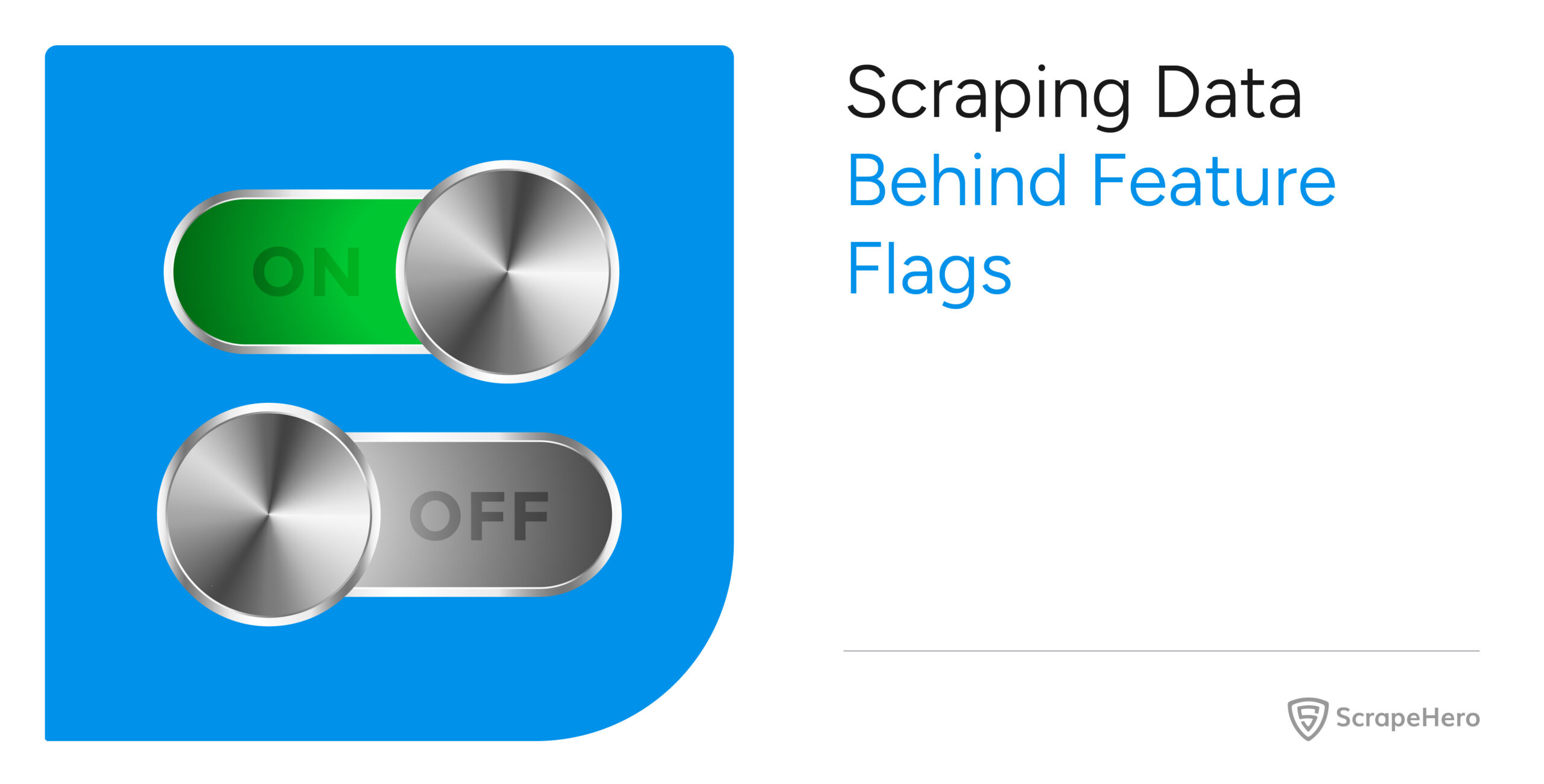Hedge funds need to consistently make sound investment decisions, which requires a vast amount of data. Web scraping allows hedge funds to extract this data from the Internet using a computer program.
This article explores this combination of web scraping and hedge funds.
Here are two ways how hedge funds use web scraping:
- Accessing Alternative Data: Web scraping allows hedge funds to scrape data from the internet that traditional sources, like surveys and official documents, often overlook. This non-traditional data can provide deeper insights into market trends and company performance.
- Web Data Integration: By automating data collection, web scraping also offers the opportunity to automate data analysis, providing faster insights.
Web Scraping and Hedge Funds: Leveraging Alternative Data

Web scraping opens the door to non-traditional data sources that can help you predict the market more precisely. Some key areas include:
E-Commerce
You can study a company by scraping e-commerce data on the web. Data from sites like Amazon and Walmart can help you track a company’s sales, pricing, and inventory trends, providing insights into the company’s performance before it becomes public.
Suppose you want to invest in a popular clothing retailer. The Amazon product pages can tell you
- Popular items
- Sale frequency
- Availability
This data allows you to look for red flags before investing in a company. For example, high availability and low sale frequency suggest a lack of demand, which can translate to a bad investment.
Want to know more? Read this article on e-commerce web scraping. It details the benefits, strategies, and more.
Web Traffic
You can use web scraping to track a company’s web traffic. By scraping data from sites like SimilarWeb, you can monitor
- Traffic volume
- Traffic source
- Visitor engagement
- Daily active users
- Bounce rates
- Referral traffic
This information helps you learn about tech companies without a long financial history. Their trend allows you to gauge the public’s interest and engagement in their products or services, indicating their growth rate.
A high growth rate suggests that a company is successfully engaging its audience, making it a more attractive investment.
Social Media Data
Scraping social media allows you to gauge a company’s public perception and market value.
Popular metrics you can get from social media include:
- Sentiment: People often post or comment on their views about a company or events on social media. By analyzing those views, you can estimate potential market shifts.
- Trends: Social media serve as an open stage for discussing emerging trends and developments, allowing investors to identify new investment opportunities.
News Data
You can use web scraping to track global news and understand macroeconomic trends. Relevant data may include
- Economic Indicators: Scraping news sources can reveal critical economic indicators, including inflation, employment, and GDP.
- Policy Changes: News articles often hint at upcoming policy changes and the public perception, providing context for investment decisions.
This information provides a big picture of the global economy, revealing possible trends that hedge funds can use to make investment decisions.
Try out ScrapeHero news API to get access to global news articles from over 2000 sources.
Job Posting Data
Job posting trends can provide insights into a company’s economic conditions. For example, a surge in job postings can suggest potential expansion. By scraping jobs data, hedge funds can gather information on:
- Posting Count
- Job Type
- Salary Range
- Job Description
Scraping job data can give a clearer picture of a company’s plans when combined with market data.
Financial Data
Web scraping allows hedge funds to get financial data more rapidly than traditional means. You can extract details like
- Stock Price
- Trading Volumes
- Indices
Extracting finance data using web scraping allows you to store them in a format, like JSON or CSV, enabling automated analysis to determine a stock’s worth.
Are you confused about where to get the financial data? Learn about that and more in this article on web scraping financial data.
Web Scraping and Hedge Funds: Using Web Data Integration
Web data integration is another way how hedge funds use web scraping. Web data integration integrates both data collection and analysis. The process includes
- Extracting data: This is where web scraping comes in. You can gather data from multiple sources, including social media and retail data, using web scraping.
- Transforming data: Once extracted, you need to transform the data by removing inconsistencies, fixing errors, and enriching missing data.
- Analyzing data: Finally, you can analyze the transformed data to get insights suggesting potential investment opportunities.
Web scraping allows hedge funds to set up web data integration as they can now aggregate data from several websites into a single stream for data transformation and analysis.
Wrapping Up: Why Use a Web Scraping Service
For hedge funds, web scraping offers several benefits, including improved company valuation with alternative data. Hedge funds using web scraping for data collection can also enjoy web data integration, which provides faster analysis.
You can have your web scraping department, allowing greater control. Or you can get expert help from a web scraping service like ScrapeHero. The second option may be better because control means nothing without expertise.
Here at ScrapeHero, we have experts to build enterprise-grade web scrapers and crawlers. Tell us your data requirements, and we will handle all the technical aspects.
FAQs
Challenges of implementing web scraping include:
1. Ensuring data quality and accuracy
2. Complying with website terms of service and data privacy regulations
3. Integrating web scraping data with existing systems and workflows
4. Hiring or training staff with the necessary technical skills
Hedge funds can be legal and ethical by
1. Reviewing website terms of service and data privacy policies
2. Obtaining necessary permissions or licenses for data use
3. Implementing data security measures to protect sensitive information
4. Providing transparency to investors about the use of alternative data
Best practices for using web scraping in hedge funds include:
1. Defining precise data requirements and use cases
2. Selecting reliable and scalable web scraping tools and providers
3. Continuously monitoring data quality and adjusting scraping strategies as needed
4. Incorporating web scraping data into existing investment models and decision-making processes
We can help with your data or automation needs
Turn the Internet into meaningful, structured and usable data








